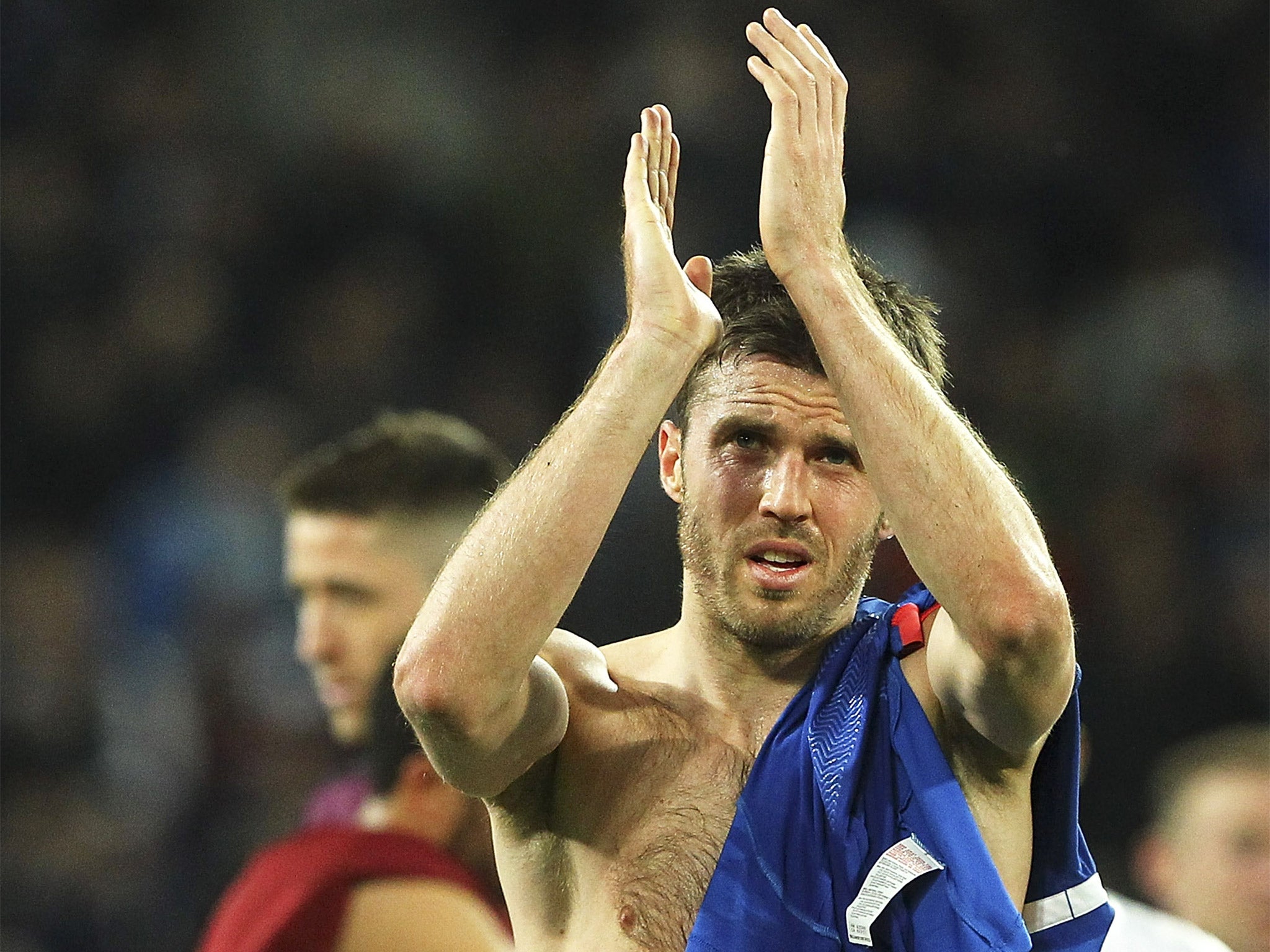Why Michael Carrick is still proving an enigma for England
Manchester United's talented midfielder has played international football for almost 14 years yet, frustratingly, has won only 32 caps

There will be resolution one day over Michael Carrick’s value or otherwise to the England team, but for the time being the issue can feel like the third runway at Heathrow, the Elgin Marbles or the faint prospect of a musical reunion between Morrissey and Johnny Marr. The answer is out there somewhere, but no satisfactory outcome is in the offing.
Carrick’s every return to the England squad tends to begin with him conducting a good-natured press conference in which he valiantly tries to explain why a career spanning almost 14 years has earned him just 32 caps, the same number as Danny Welbeck, who made his debut in 2011. There are the great anomalies of Carrick’s career, such as the hiatus of almost four years between his second and third caps which, in hindsight, might just have been crucial.
It was during that time that he was relegated with West Ham and spent a year in the Championship while others were making a name for themselves in the Premier League. Even now, with the departure from the international scene of Steven Gerrard and Frank Lampard, the most obvious barrier to Carrick’s England career is that he has been caught up by the next generation of Jack Wilshere, Jordan Henderson and Fabian Delph.
Perhaps the most remarkable observation of all this week has been the calculation that if Carrick plays at Euro 2016, he will have had the longest England career of any outfield player since Sir Stanley Matthews, who racked up 23 years between his first cap and his last, his 54th, in 1957, earned at the age of 42.
Having identified Carrick as the key factor in transforming England’s performance against Italy on Tuesday, Wayne Rooney acknowledged that the relatively low profile of his affable Manchester United team-mate had evidently counted against him.
Rooney said: “I think he [Carrick] was probably more of an easy choice to leave out when we had big-name players in the squad. But I always felt he should be in the team and certainly in these past two performances he has done himself no harm.”
Carrick was a stand-by player for Roy Hodgson’s World Cup finals squad in the summer, unused in the end as Gerrard and Lampard had one last shot at tournament success. Two years earlier, before Euro 2012, his international status had been much more confused. Hodgson was under the impression that Carrick did not want to take part, but it emerged later that with a bit of encouragement he would have played.
As ever, there has been no consistent theme to Carrick’s career: he comes into the squad and he goes out again, a player whom managers have habitually looked past for the next big midfield prospect. For that he must take some of the blame. He can defer too much, although that is part of his game. In a weakened England team, playing a similarly depleted Germany side in Berlin in 2008, he was thrust to the forefront and controlled a game Fabio Capello’s team won 2-1.
Carrick’s strength has always been the consistency he has produced over the course of a season, and perhaps he is not suited to the look-at-me flavour of international football, where an immediate, eye-catching contribution will often ensure a manager’s loyalty.
There were also times that Carrick passed out of favour with Sir Alex Ferguson, who bought him from Tottenham for £18.6m almost nine years ago. But since 2006, the year in which Carrick played his single tournament game for England, against Ecuador in the second round of the World Cup in Germany, he has won five Premier League titles, as well as the Champions League in 2008.
“I felt Michael was the best player on the pitch by a mile,” Rooney said on Tuesday night. “He gave us great composure, he slowed the game down when we needed to and started our attacks really well.”
Asked whether he thought Carrick had been under-rated over the years, Rooney added: “Not from me and certainly not from Manchester United fans. I think he is a fantastic player, he has been a big reason why we have won so many trophies over the last few years.”
Over the years, Carrick’s qualities have become a rallying point for his United team-mates, past and present, although even Gary Neville’s senior position among Hodgson’s staff has not transformed his status significantly.
Having started against Lithuania on Friday, Carrick was put on the bench for the Italy game which, if nothing else, will not have come as a surprise to him.
In it for the long haul: Carrick closes in
Michael Carrick’s England career has spanned 14 years - and four managers - since his 2001 debut. If he plays at Euro 2016 he will have had the longest outfield England career since Stanley Matthews.
How Carrick compares:
Stanley Matthews
Eng career: 23yr 8m (54 caps)
Frank Lampard
14yr 9m (106)
Steven Gerrard
14yr 1m (114)
Michael Carrick
13yr 11m (33)
Tony Adams
13yr 8m (66)
Rio Ferdinand
13yr 7m (81)
David Beckham
13yr 2m (115)
Jesse Pennington
13yr 1 m (25)
Ashley Cole
12yr 9m (107)
Billy Wright
12yr 8m (105)
Stuart Pearce
12yr 4m (78)
John Barnes
12yr 3m (79)
Carrick’s England career envelopes entirely that of former captain John Terry, who represented his country 78 times between 2003-12.
Join our commenting forum
Join thought-provoking conversations, follow other Independent readers and see their replies
Comments
Bookmark popover
Removed from bookmarks